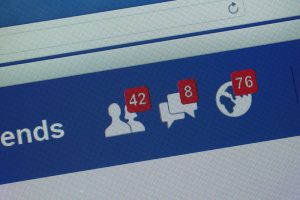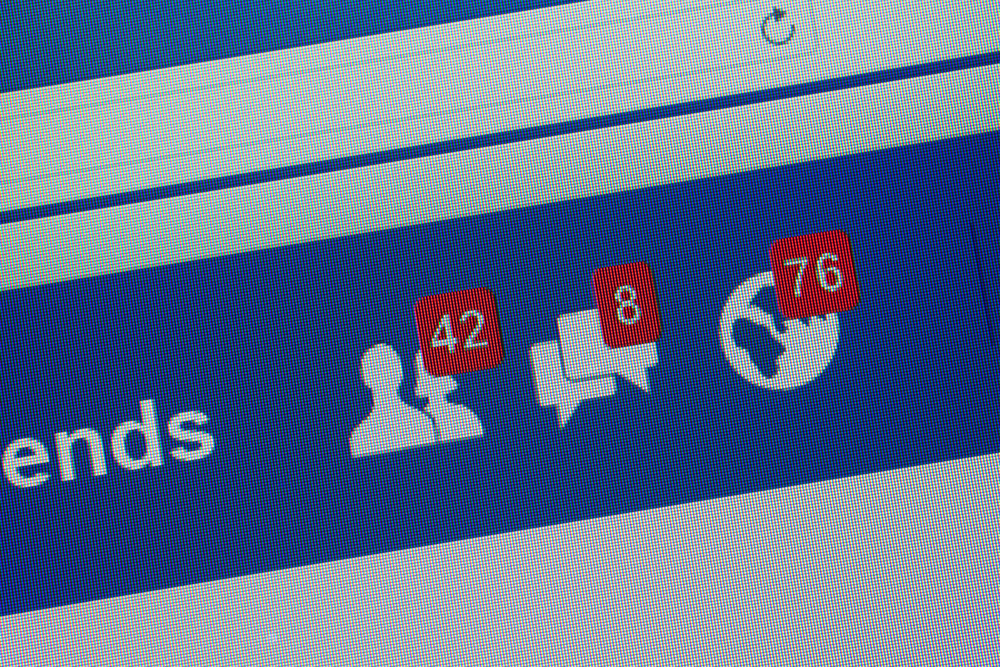
Disruption, although now a cliché in the world of startups, still has powerful meaning. In the entrepreneurial community, disruption describes how a new entrant can exploit vulnerabilities in a specific industry to a degree it can turn its marketplace upside down. This explains why venture and angel investors love to find disruptive technologies and companies. Disruption can occur with small niche industries as well as ones that touch nearly everyone’s lives. Having been involved in technology my entire professional life, I have been both a curious observer and even participant in these revolutionary endeavors. More on that later. From my perspective, Facebook is hands down the most profound, disruptive, and powerful application ever to see the light of day (some might put Amazon in this category, but I classify it as more than just an application). It has quite frankly changed the world. For that it deserves the moniker “Killer” app.
Why the quotes around killer? Because it’s intended as a double entendre. The traditional use of the word in the technology industry is as an adjective, meant to describe it as something extremely good or powerful. As a verb, it’s intended use is obvious: some thing or person that kills. Facebook deserves both applications of the word. To my knowledge, the first time an application was described as a killer app was for the spreadsheet. Pioneered by the application VisiCalc deployed on Apple computers, it was the first application that changed the computer industry in to a serious business application tool. The spreadsheet was, and still is a killer app.
While some may not describe Facebook as something good, most of the world obviously does. Otherwise we wouldn’t have twenty percent of the world’s population actively using it. That is a staggering statistic. There are over 7 billion people on the planet and nearly 1.5 billion of them are active Facebook users. And before you go there, this does not include the 80 million suspected fake accounts. Further, twenty percent of the world population doesn’t even have electricity and another 1.9 billion are children below the age of 15. So in reality, the percentage of the world with likely access to Facebook suggests it is even more influential than what we might imagine. With that kind of use and given that it is a for-profit company, it should be abundantly clear that Facebook is has a powerful economic impact.
But there is a difference in financial and economic analysis. The financial is what we typically read about. It’s market cap exceeds $327 billion at the time of this writing. It may fluctuate a few billion from day to day, but its still the sixth largest company in the world, frequently switching places with another disrupter, Amazon, which is the fifth largest. Apple remains in the number one slot. It’s also interesting that five of the top seven in market cap are technology companies. These are all financial measures. Economic measures are better evaluated in terms of how they affect the microeconomic landscape.
How does Facebook impact the economy? Obviously as an employer, they have substantial impact with approximately 13,000 employees. Their payroll alone has significant contributions wherever those employees reside. And let’s not forget about advertising. Forty two percent of markets claim that Facebook advertising is important or critical to their business. That translates into a massive business impact in the world economy.
Back to using the verb version of the word killer. Let’s examine how Facebook’s status as a killer impacts the business and consumer world. From the disruptive side of things, they’ve certainly shaken things up. While I have no statistics on this, my anecdotal experience gives me confidence in knowing that Facebook has become a news media powerhouse. The vast majority of my Facebook wall is dominated by shared stories coming from other media such as blogs and to a lesser extent, traditional news outlets. Even those outlets have their own Facebook presences, using Facebook to help promote their stories. In this sense, Facebook has shredded the traditional media outlets and put many of them into a tailspin. Yes, their stories are being shared, but that doesn’t necessarily translate into visits to their websites or subscribers to their content.
I mentioned previously that I’ve been a participant in disruptive technology. I’m a software engineer by trade and a few years ago, I had an idea to develop a specialized news aggregation platform for mobile applications. I was convinced I had a killer app on my hands. I invested a substantial amount of money and a year of my life in developing that platform. The applications were similar to Flipboard (a popular news aggregation app), except each app specialized in a specific news area. I was targeting people with passionate hobbies or interests and showing them articles from all over the web specifically related to that news genre.
The subjects could have been broad or more specific, e.g. sports, gardening, firearms, or any other area where rabid enthusiasts could be found. The execution was good. They were attractive apps, they worked well, they were current, and they were free (my revenue model being tied to advertising). There were literally hundreds of new, curated articles every day and updated every fifteen minutes. In the end, the project was an abject failure. After sucking up to that fact, I did an objective post mortem evaluation. My conclusion was that I simply could not compete with Facebook. Had I known I was competing with Facebook in the first place, I wouldn’t have done it, but I missed that critical analysis when considering the project early on. I didn’t realize it, but I was starting a buggy whip business just before Henry Ford figured out how to get cars to the masses at affordable prices.
I actually used Facebook in my market analysis though. Looking at the subjects for the apps, in some cases I found hundreds, if not thousands of Facebook pages dedicated to each of the subjects. Some of those pages had enormous followings. I knew that if I could get a substantial portion of those followers, my product would be a success. So, why couldn’t I get people to download and use these free apps? Because they wanted to stay on Facebook and they enjoyed the powerful social component that came with it. They could easily share and access nearly everything they were interested in from a single application and at the same time watch cool cat videos. They could also try to stir up drama, engage in other people’s drama, and raise hell to their heart’s content. Facebook was and is an all encapsulating application like that. My apps weren’t. The result? The news aggregation market will never be the same. While Flipboard and others like it continue to exist, I can almost guarantee their principal competitor will be Facebook. And if it weren’t for Facebook, the news aggregation marketplace might be composed of killer apps (the adjective type) in their own right.
Facebook has contributed to the downfall of many. Anyone remember applications called Friendster and MySpace? Others still exist, but how many ad platforms have seen their revenue shrink due to the domination of Facebook? No doubt many. And who can calculate the economic impact of an election? Many in the political world claimed that our current president won his first election because his campaign figured out how to effectively use social media. Can we attribute the election to Facebook and Twitter? It might be so. And what is the impact of sharing a cause with a potential worldwide audience? Consider the darker side of things. There has been much written lately about how terrorist organizations are using Facebook as a recruiting tool. If you think terrorism doesn’t have an economic impact, you might have your head in the sand. And of course there are some other adverse impacts due specifically to Facebook. Consider how much productivity is lost in corporate America today due to people constantly checking their Facebook status. The diminished productivity due to loss of concentration alone is probably astounding. By the way, I checked my Facebook status a dozen times or more while drafting this article. Now, where was I?
Finally, I would be doing Facebook a disservice if I didn’t mention how brilliantly the development and launch of Facebook has been executed. None of this disruption or economic impact would have happened if it had not been for the near perfect execution of their business. They were patient, disciplined, and went public at just the right time. They introduced their advertising model slowly (and it continues to evolve). Unlike obnoxious pop up and interstitial ads, when you see an ad on Facebook, it’s not loud or offensive (due to their strict standards). And if you don’t like it, you can tell Facebook so and you won’t see it again. Otherwise, all you have to do is scroll on by. And they have completely nailed the understanding of their user base. Their advertiser opportunities for targeting are granular and quite frankly, amazing. I’ve been amazed that I will often see ads within minutes of having searched for the same product on a separate browser window. It’s a little creepy, but it’s effective. Compare that with Twitter, who seems to be faltering badly on the revenue side of things, because they don’t understand their users. On Twitter, I don’t understand why as a 61 year old male I would see an ad for feminine hygiene products. A perfect example of how good execution can make all the difference. If Twitter doesn’t do something soon, they will likely find themselves going the way of MySpace.
In the end, the list of incalculable economic impacts attributable to Facebook is nearly endless. Give it some thought, I bet you can think of many more.
